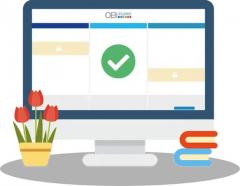Introducing 'rule based working' in OBI Engage
Future-proof customer contact is one of the hot topics in customer service. In the last couple of years our partner OBI4wan has developed several new functionalities for their online customer contact platform OBI Engage. With this platform, organizations can manage their webcare, messaging, publishing and social media monitoring in a structured and efficient manner. Now they are taking the next step in efficiency and launching 'rule based working', a handy feature that allows organizations to go the extra mile when it comes to handling online messages.
In 'rule-based working', human intelligence is simulated by technology. Man-made rules are applied to store or sort data. The rules work according to the principle: if A occurs then B must happen. On the OBI Engage platform, this means that repetitive tasks done by customer service employees can be automated, reducing the pressure on these employees. There are a number of standard 'rules' that can be used, such as the automatic reply to a customer who sends a message outside opening hours through one of the customer channels.

“We see very clearly that the volumes in online customer care are increasing rapidly. By introducing rule-based working, we offer our customers the opportunity to give their efficiency an extra boost. Not only pleasant for their employees, who can focus on more complex questions, but also for the customer, who is helped more quickly.”
Alexander de Ruiter, CEO OBI4wan
It has been possible in OBI Engage for some time to have these messages handled by a chatbot, according to similar principles. However, with the switch to this 'rule based working' method, this handling has been fully integrated into the OBI Engage platform itself. For customers, this has the advantage that messages are handled by the 'rules' before they become visible to employees in the streams. This immediately saves employees time, because they do not have to spend valuable time on messages that are already being handled or moved.
Custom 'rules' also possible
In addition to the standard 'rules', custom made 'rules' are also possible. For example, automatically moving a message to another stream if the message contains certain terms. For example, it is possible to set the presence of the words “invoice” or “payment” as a 'rule', so that the message is automatically moved to the stream of the employee who specializes in finance. As well as a 'rule' that automatically moves messages as soon as certain information or specific characteristics are behind the customer in the CRM. But it is also possible to automatically assign cases to agents based on their availability and workload.
Curious to see how this works? Request a free demo!